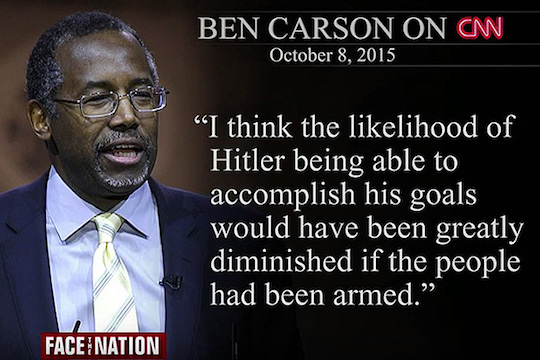When I was an expensive SAT tutor, we made the kids learn three examples from history for the essay section. It doesn’t matter what the question is. Pick three historical examples—Rosa Parks, free silver, French revolution—and learn enough that you can use them to respond to any prompt. It sounds like we were gaming the test, but really that’s how smart people think. You don’t try to become an expert on every conceivable situation. You learn a lot about a few things—chemical engineering, the Bible, judo—and use them as frameworks to understand whatever comes up. The goal is not to additively expand your knowledge, but to multiply your ability to apply what knowledge you have. Most high schools don’t teach that way, because it’s hard. They try to cram as much knowledge into your kid as they can, and the really expensive ones cram more and harder. Anyway, that’s why your kid needs a tutor. Also, there was one example from history my students were not allowed to use: rise of Hitler.
The College Board jealously guards such data, but I believe rise of Hitler is the most-used historical example on the SAT. If we could measure the sum total of Facebook conversations, water-cooler arguments and presidential candidacies, I daresay we’d find it the most-used historical example in America. That’s probably because it is the most well-known.1
Godwin’s Law holds that as an online discussion grows longer, the probability of a participant comparing someone or something to Hitler approaches 1. This facetious principle of internet discourse also applies to what is still called the real world. Mike Huckabee evoked the Holocaust in his criticism of the Iran deal. Georgia state representative John Yates compared illegal immigrants to Hitler. The chair of the UN panel on climate change compared scientist Bjorn Lomborg to Hitler for denying global warming.
It’s possible that a Guatemalan who sneaks into Texas is not quite the same as an Austrian who murdered six million Jews. At first blush, these comparisons seem to trivialize one of the worst events in human history. The first blush wants only to exercise righteous indignation; it would be more accurate to say comparisons to rise of Hitler exaggerate what’s being compared. But I submit that the second blush is uncharitable, too. As odious as it is, comparing everything to rise of Hitler is one of the few elements in American discourse that resemble argument in good faith.
Comparisons to rise of Hitler are overused because it’s one of the few things we all still agree on. Black and white, liberal and conservative, country fan and music fan—we all agree Hitler was bad. At a moment when we can’t even agree not to wall off Mexico, that consensus is precious. When Ben Carson is groping for a way to say he opposes gun control and wraps his long, delicate fingers around rise of Hitler, he reaches for a shared value. Albeit clumsily, he is upholding the essence of honorable discourse. You don’t just say it. You prove it, starting with something on which we agree.
Ben Carson hardly ever does that. It feels weird to claim he is at his best when he is comparing people to Hitler, but at least it is a reference. At least in that moment, he refers to a world of facts. Most of the time he is just sayin’ stuff. But when he compares things he doesn’t like to rise of Hitler, he condescends to argue by evidence once more.
If we finally convince people to stop using rise of Hitler as their historical example—and I hope we do—what widely understood, consensus example will we have left? Somehow, slavery is controversial. My personal favorite, Cross of Gold speech, is too little understood, and Gandhi is foreign. Without rise of Hitler, there is no bridge between the world of my facts and the world of yours.
Now that media and religion are lies, we need something we can all agree is true. Hitler was bad, and therefore everything bad is like him. “Gun control is bad because it resembles rise of Hitler” is an infuriating argument. But is it more infuriating than “gun control is bad because I say so?”




